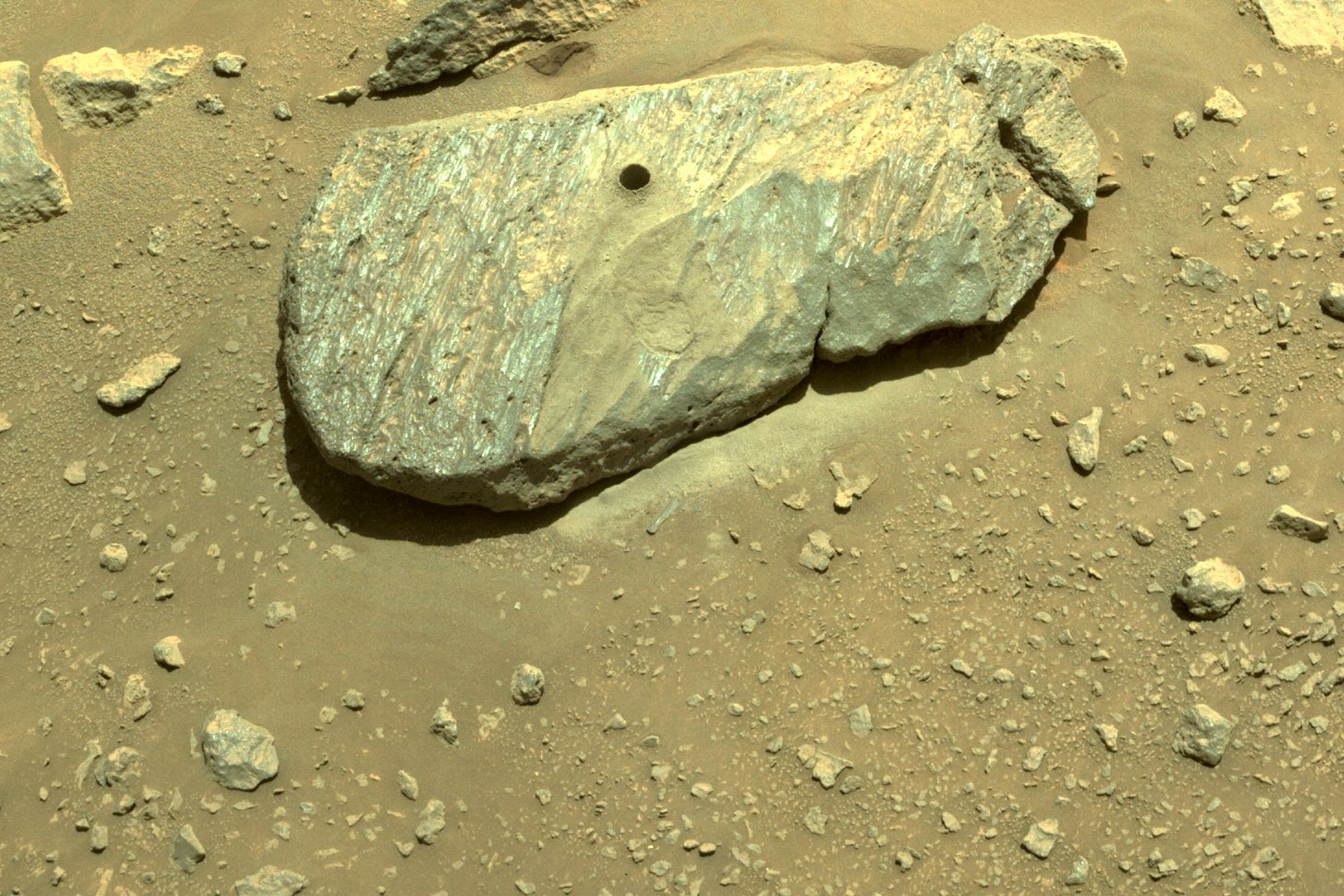NASA confirms Mars rover's 1st rock sample grab, 40 to go
NASA's newest Mars rover has completed its first sample grab, tucking away the tube of rock for return to Earth

NASA’s newest Mars rover has completed its first sample grab, tucking away the tube of rock for return to Earth
The Perseverance rover team confirmed last week’s successful drilling and collection, after reviewing photos of the core sample. NASA wanted to be certain the sample was safe inside the titanium tube, before sharing the news Monday.
During Perseverance’s first sampling attempt in early August, the unexpectedly soft rock crumbled. Flight controllers at NASA's Jet Propulsion Laboratory in Pasadena California, sought out harder rock for the second try.
Perseverance arrived in February at Mars' Jezero Crater — a former lakebed and river delta — in search of rocks that could contain evidence of past Martian life. Future spacecraft will collect the specimens and deliver them to Earth a decade from now. The rover has more than 40 sample tubes.
___
The Associated Press Health and Science Department receives support from the Howard Hughes Medical Institute’s Department of Science Education. The AP is solely responsible for all content.
Bookmark popover
Removed from bookmarks